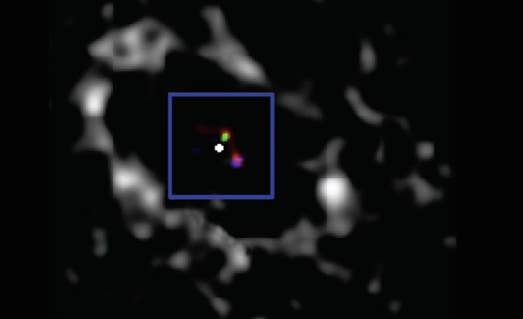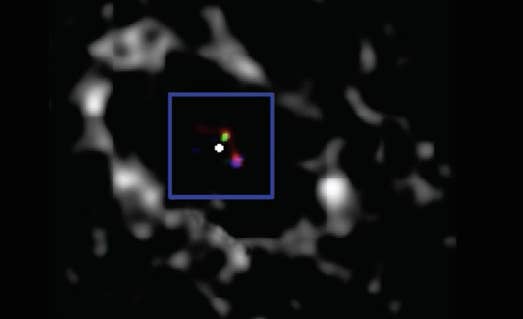
Scientists have captured footage of the birth of a planet for the first time in history.
A team of astronomers, led by University of Arizona graduate student Stephanie Sallum and Stanford University postdoctoral fellow Kate Follette, announced the discovery in the science journal Nature on Wednesday.
"It's an exciting observation," Sallum told Popular Mechanics, "now we can finally watch planetary formation as it's happening."
The new planet, currently named LkCa-15b, sits 450 light years from Earth and adjacent to the 2 million-year-old star LkCa-15. "It's just a really difficult observation to make," Sallum says about the planet's formation. "450 light years is far enough away that the separation between the planet and the star we're seeing is really, really small. And keep in mind, the planet is much fainter than the star."
There have been over 1,900 exoplanets—planets that orbit stars other than the sun—detected in recent years, but until now, scientists have not seen their formations.
According to Popular Mechanics, this is because planets spend only a brief period of time in formation, compared to their long life spans. Not only is the time frame small, but younger star systems like LkCa-15 "are inherently gassy and dusty, with stars that shine relatively chaotically," making visibility another challenge.
Sallum and her team found a way around these problems by concentrating on a gap between LkCa-15 and the gas ring that surrounds it, rather than directly at the forming planet.
By taking infrared images of LkCa-15's star system and overlaying it with hydrogen-alpha emissions, the team was able to detect light that appears when hydrogen atoms pass through a forming planet's magnetic field, signifying a new world's birth.
In an essay accompanying the study in Nature, Princeton University astrophysicist Zhaohuan Zhu said that this discovery will have a lasting impact. The team's new methodology is "one that will discover many such planets in the future."

